-
July, 26,2025
Understanding the Role of Bloom Strength in Soft Gelatin Capsules
-
July, 25,2025
Bloom Strength and Its Impact on Hard Gelatin Capsules
-
July, 21,2025
How Gelatin Is Revolutionizing Pet Food: A Healthier Option for Dogs
-
June, 22,2025
Collagen as a Trusted Ingredient: Meeting Global Demand with Reliable Supply
Understanding the Key Properties of Gelatin for Optimal Manufacturing Applications
Gelatin is a by-product of collagen that is one of the most critical, diverse ingredients in the food and pharmaceutical industries. The quality and processability of innumerable merchandise depend heavily on the three principal attributes of gelatin: gel strength, viscosity, and emulsification. Knowledge of these characteristics and factors that affect the performance of gelatin will provide the possibility for manufacturers to completely optimize its applications in various industries.
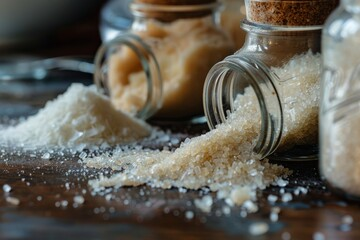
Physical Properties of Gelatin
Gel Strength (Bloom Value)
One of the most important physical properties of gelatin is gel strength, which is normally characterized by the Bloom value. This provides a measure of the capacity of gelatin to form a gel upon dissolution in water and subsequent cooling. The higher the Bloom value, the stronger the gel; this is important for applications such as desserts and capsules that require strong gels. For example, commercial gelatin desserts, jellies, and gummy candies are normally made with gelatin having a Bloom strength of 200 or above to ensure that the product would possess the desirable shape and texture at the time of consumption.

Viscosity
Viscosity is the measure of a solution of gelatin's fluidity, and it is one of the parameters of importance in the manufacturing process. Viscosity depends on factors such as temperature and concentration. In general, a solution of gelatin is less viscous when heated, and thus easier to mix and pour. In attempting to achieve optimum viscosity in production, the manufacturer often aims for a level that may be more favorable. More importantly, understanding viscosity helps companies formulate products with specific textures for the desired mouthfeel. We have designed our products to meet specific applications with a desired viscosity.
Solubility
The properties of gelatin, concerning its solubility, are useful for many applications in the food and industrial areas. Gelatin can be easily dissolved in hot water, the solution getting a transparent aspect, which, on cooling, produces a gel. The characteristics concerning the solubility depend either on the type of gelatin, porcine, bovine, or fish origin, and the processing conditions. Thus, for certain applications, choosing the proper type of gelatin is of importance in so far as one is interested in the final result.
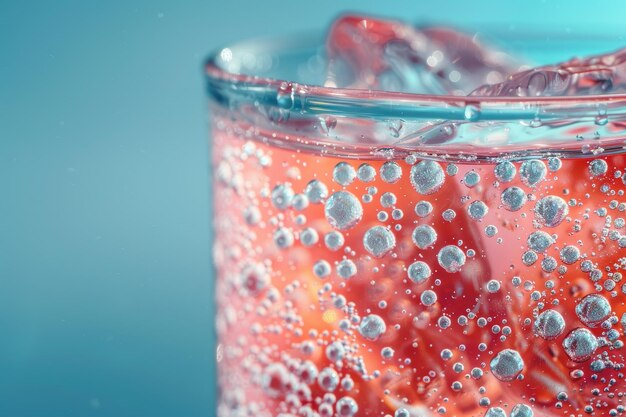
Moisture Content
The functionality and durability of gelatin depend on the level of moisture content. Commonly, 10 to 15 percent moisture content is found in ordinary food-grade gelatin. It is very important to check proper moisture during storage and processing, since degradation often sets in after water penetration; further, being able to understand how different types of moisture affect gelatin allows a manufacturer to be able to optimize their formulation for longer shelf life. Our products are designed to maintain optimal moisture levels, enhancing durability and usability.
Chemical Properties of Gelatin
Amino Acid Composition
The amino acid composition represents the other essential chemical property of gelatin. The high content of glycine, proline, and hydroxyproline in gelatin gives uniqueness to many of its functional properties. This profile provides not only enhanced functionality as a gelling agent but also opens up nutritional benefits, which health-conscious consumers demand. While manufacturers more and more strive for health and wellness consumer trends, the amino acid profile represents a great selling point for gelatin.
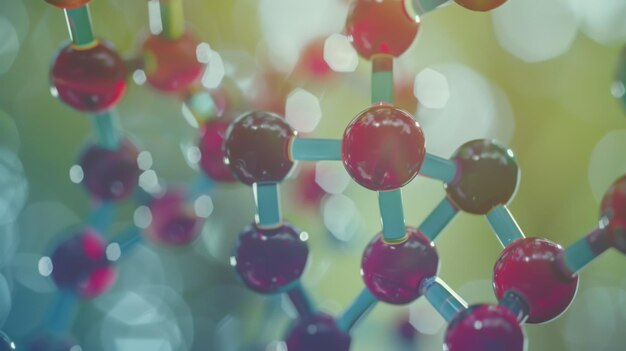
pH Level
The pH value of the gelatin solutions will determine whether or not there is gelation, and what the stability of this process is. Generally speaking, an intermediate pH, about 7.0, is favored because it offers optimal functionality. On the other hand, many different pH levels are applied where specific functions are intended for a variety of uses. As such, low pH may endow gelatin with increased emulsifying properties, useful in certain specific food applications.

Isoelectric Point
The isoelectric point of gelatin ranges between 4.5 and 5.5. At this pH value, gelatin does not have a net charge that could influence its solubility and gelling behavior. The IEP can be critical in the formulation of products, as it may provide information on stability and performance under several conditions. In this respect, knowledge of the IEP optimizes gelatin for particular applications.
Molecular Weight Distribution
Molecular weight distribution is one of the most important factors for the functional properties of gelatin, such as gel strength and viscosity. The characteristics will differ in products having a wider range of molecular weights, and their area of application will also be varied. For instance, low molecular weight gelatin may be easier to dissolve but can give low gel strength. On the other hand, high molecular weight gelatin may give improved gelling characteristics.
Functional Properties of Gelatin
Gelling and Thickening
It is well-recognized for its gelling and thickening properties, which can be very important in many foodstuffs such as mousses, creams, and jellies. In gel form, gelatin usually precipitates when dissolved in water and cooled to below its melting temperature; this gives food an enhanced texture and mouthfeel. Additionally, its thickening action helps maintain the consistency of sauces and soups. It should, therefore, be no surprise that all this makes it an increasingly important ingredient in food applications.
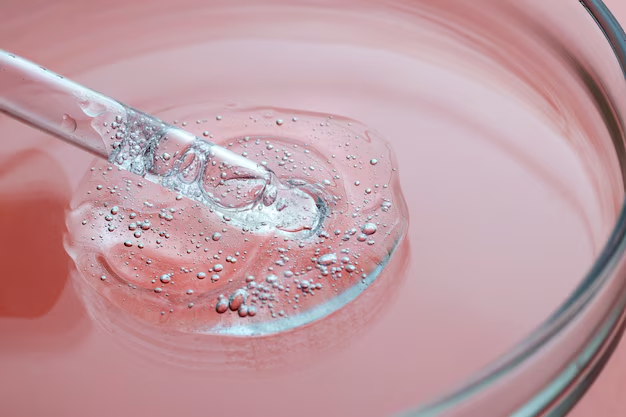
Foaming and Emulsifying
Besides gelling, gelatin is a foaming and emulsifying agent. This property is very useful in the manufacture of whipped creams; it stabilizes the air bubbles incorporated within the cream to give a light, airy texture. In emulsions, it helps mix ingredients that do not normally mix well, like oil and water. By being an emulsifying stabilizer, it would allow manufacturers to realize a homogenous and stable product. Our gelatin has been optimized for such functionalities to offer superior functionality in food formulations.

Film-Forming Ability
Gelatin has some very interesting characteristics; for example, it can form edible, biodegradable films that make it very attractive as a coating and packaging material for foods. It imparts films with moisture control and barrier properties, which help in extending their shelf life. Furthermore, the film-forming characteristics of gelatin enable new packaging concepts that are functional while being friendly to the environment .
Factors Affecting Gelatin Properties
Source of Gelatin
The origin of gelatin will be highly consequential to its properties, either bovine, porcine, or fish type. Each source has its characteristics and functionalities that may affect the properties of the finished product. Fish gelatin, for example, has been mostly used in kosher and halal products due to the dietary restrictions concerning pork and beef. Thus, each one with different properties will help the producers choose what will be more suitable for their application. Funingpu provides a series of gelatin sources that can meet different dietary and ethical needs.
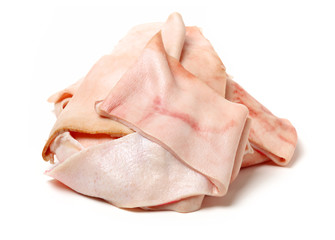
Processing Conditions of Gelatin
Its physical and chemical properties will be modified according to the processing techniques, which include thermal treatment and treatment with acids/alkalis. For example, overheating for too long a time may cause depolymerization and thus reduce gel strength. The manufacturers shall pay special attention to the processing technique to optimize the performance of the gelatin and maintain product consistency. Therefore, proper processing techniques are very crucial for the realization of desired characteristics in gelatin. The technical support team of Funingpu offers guidance on optimal processing methods to help customers maximize gelatin performance.

Additives and Modifications of Gelatin
Sugars, acids, and stabilizers are some of the additives that could be employed in modifying or enhancing the properties of gelatin. Specific functionalities, such as gelling, emulsification, or stabilization, can be achieved with these modifications so that manufacturers come closer to their objectives. Citric acid, for example, will increase the stability of gelatin under acidic conditions, making it more compatible with certain food formulations. This flexibility in food formulation allows product developers to innovate and create unique formulations. Funingpu works directly with customers in close contact to offer tailored gelatin solutions that include precisely added additives for specific uses.
Application-Specific Considerations for Gelatin in Different Uses
Gelatin in the Food Industry
Gelatin is used in the food industry for a wide range of applications, from thickeners in desserts and gelling agents in jellies. Its versatility allows innovative product development to accommodate a wide array of consumer tastes. Applications in dairy products, bakery, and confectionery ensure the expected texture and stability of gelatin. As consumer interests surge in clean-label, food manufacturers shift to food products containing alternative sources of gelatin, including plant-based material, to help meet dietary preferences. At Funingpu, we respond to your top-most demand in both traditional and modern consumers with a continually secured supply of high-quality gelatin.

Gelatin in the Pharmaceutical Industry
Another important application of gelatin within the pharmaceutical industry is capsule manufacturing and drug delivery systems. In addition, due to its biocompatibility and degradability properties, this biomaterial may be ideal for the development of sustainable health care. Gelatin has lately gained increasing interest in the field of new drug delivery system development, like microparticles and nanoparticles, which have many advantages, such as bioavailability and targeted drug delivery mechanisms. Funingpu focuses on pharmaceutical-grade gelatin, purposed to meet excellent performances in drug formulations, even on the efficacy and safety of drugs.

Final Thoughts
Gelatin is characterized by the following properties: firmness, viscosity, solubility, and transparency. Characterization of gelatin is important for manufacturers when they want to optimize their application. In industries, the versatile characteristics of gelatin enable them to manufacture high-quality products to meet all consumer requirements and regulatory standards. As these trends change with time, the advancements in the knowledge of the capabilities of gelatin will continue to drive innovation in foods, pharmaceuticals, and many other applications. Fujian Funingpu Biotechnology Co., Ltd., china gelatin manufacturing supplier, provides top-quality gelatin and collagen solutions to improve the performance of your products.
FAQs
1. What is the Bloom value of gelatin, and why is it so important?
The Bloom value describes the gel strength of gelatin, which reflects the hardness when the gelatin is set. The higher the Bloom value is, the stronger the gel will be; this is critical in ensuring product quality for such applications as desserts, jellies, and capsules.
2. How does temperature affect gelatin viscosity?
The viscosity of gelatin is strongly influenced by temperature. In general, heat reduces the viscosity of gelatin and makes it easier to handle and process by mixing or otherwise. For this property, it is considered an important means of producing specific textures for food and pharmaceutical applications.
3. In which industries does gelatin find most of its application?
Gelatin has wide applications in food, pharmaceuticals, and many others. The versatility of it lies in the very important ingredient in the production or manufacture of such various products: from desserts and vitamins up to skin care.
4. What properties can differ in gelatin due to its source?
The source of gelatin does affect functional properties, such as its gelling strength and solubility. Moreover, it affects dietary considerations; it should be left to the manufacturers to choose what type of gelatin best suits their target market.
Phone: +86-577-88105990
Mobile: +86-138 5886 1938
Official Website: www.fnp-gelatin.com
Email: sales@funingpu.com
Address: No. 1-10 Wenpu Road, Yacheng Town, Xiapu County, Ningde City, Fujian Province




